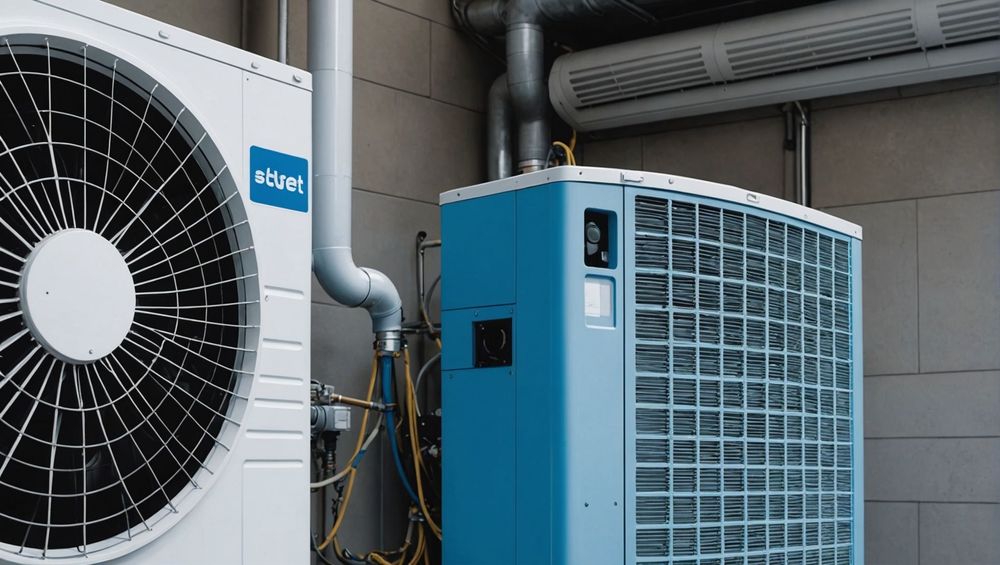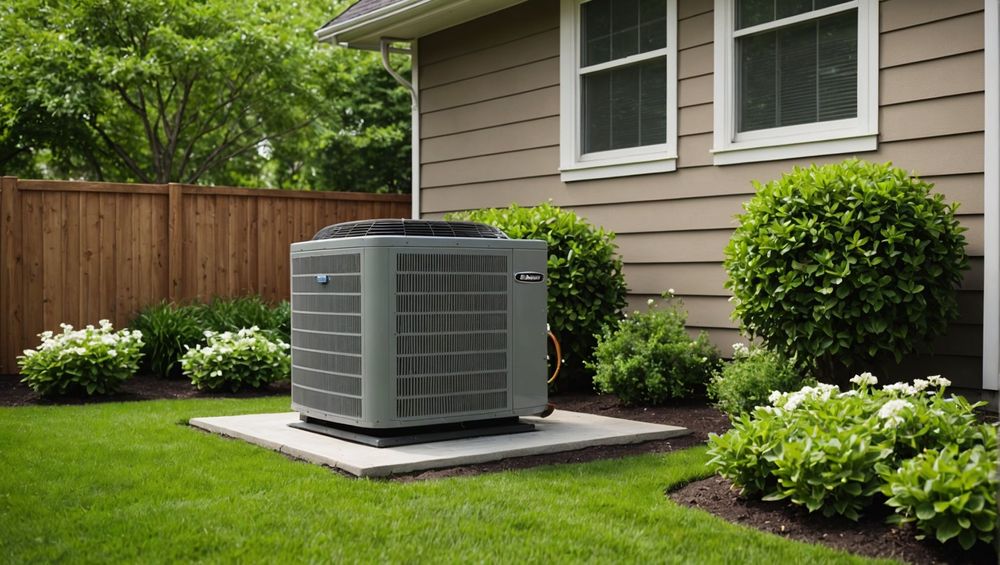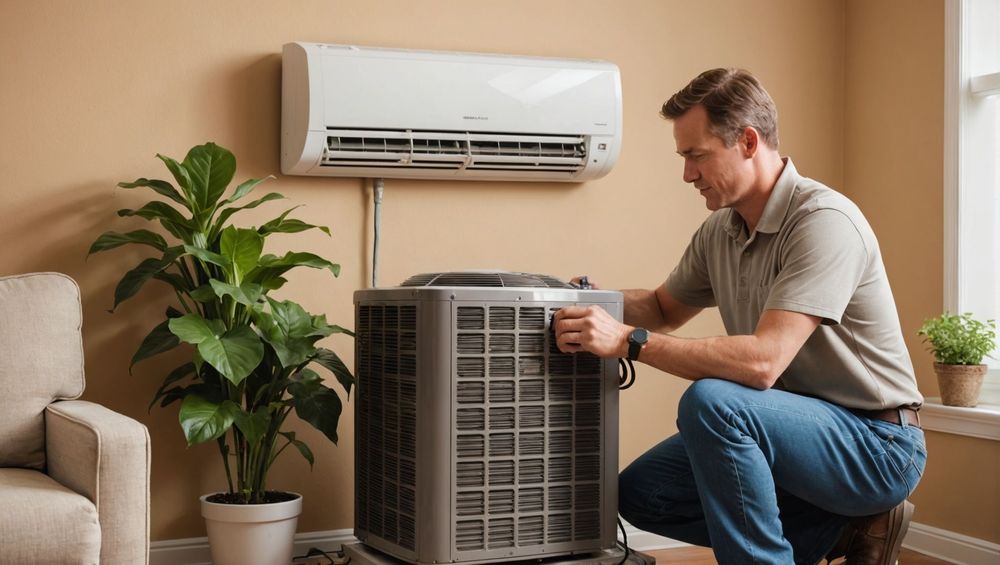An air conditioning system is designed to control the temperature, humidity, and air quality of an indoor space, providing comfort through cooling and sometimes heating. These systems work to remove heat from the indoor air and expel it outside, thereby cooling down the interior environment. They can come in various types and sizes, catering to different needs and applications, from residential homes to large commercial buildings. By regulating the air quality, they contribute significantly to the overall comfort and health of the occupants. Understanding how an air conditioning system operates and its components can help you maintain it effectively and ensure its longevity.
How Does an Air Conditioning System Work?

Air conditioning systems operate primarily based on the principles of thermodynamics. They utilize a refrigeration cycle that absorbs heat from the indoor air and releases it outside. This process involves several key components that work together seamlessly:
- Evaporator Coil: This coil absorbs heat from the indoor air, causing the refrigerant inside to evaporate and transform into gas.
- Compressor: The compressor compresses the gaseous refrigerant, increasing its pressure and temperature before sending it to the condenser.
- Condenser Coil: Located outside, the condenser coil releases the heat absorbed from the indoor air into the outdoor environment, allowing the refrigerant to condense back into a liquid.
- Expansion Valve: This valve decreases the pressure of the liquid refrigerant, preparing it to absorb heat once more as it returns to the evaporator coil.
This continuous cycle of evaporation and condensation effectively cools indoor spaces, while also balancing humidity levels, making living and working conditions far more comfortable.
Types of Air Conditioning Systems
There are several types of air conditioning systems available, and each type is suited for different needs and building types. Understanding the options can help homeowners and business owners decide which is best for their specific situation:
- Central Air Conditioning: Most common in larger homes and commercial buildings, this system uses ductwork to distribute cooled air throughout various rooms.
- Window Air Conditioners: Compact and easy to install, these units are ideal for single rooms and small spaces, fitting securely in a window.
- Portable Air Conditioners: Similar to window units but movable, these systems can be used in different rooms and require no permanent installation.
- Split Systems: These systems have an outdoor unit and an indoor unit, allowing for quiet operation and flexibility in installation, commonly used in homes.
- Hybrid Systems: A combination of electric and gas power, hybrid systems provide energy-efficient options by switching between energy sources based on environmental conditions.
Choosing the right air conditioning system can help ensure cost-effective cooling and comfort, making it essential to assess your specific needs before installation.
Benefits of Air Conditioning Systems

Installing an air conditioning system offers numerous advantages that go beyond comfort. Here are some key benefits:
- Improved Air Quality: Air conditioning systems help filter out pollutants, allergens, and dust, contributing to a healthier indoor environment.
- Temperature Control: These systems allow homeowners to set and maintain a desired temperature, offering relief during hot weather.
- Increased Productivity: Comfortable working conditions regulate indoor climates and can enhance productivity in office spaces.
- Humidity Reduction: Effective humidity control prevents mold growth and other moisture-related issues, protecting both health and property.
- Energy Efficiency: Many modern air conditioning units are designed with energy-saving features that lower electricity costs.
These benefits highlight the importance of air conditioning systems in daily life, improving both comfort and health, while also increasing overall property value.
Maintenance of Air Conditioning Systems
Proper maintenance is crucial to the effectiveness and longevity of air conditioning systems. Regular upkeep helps avoid costly repairs and ensures optimal performance. Here are some essential maintenance tips:
- Change Filters Regularly: Dirty filters restrict airflow and can cause the system to work harder, leading to increased energy costs and wear.
- Clean Coils: Ensure that both the evaporator and condenser coils are clean to maintain efficiency and cooling capacity.
- Check Refrigerant Levels: Low refrigerant can indicate leaks and affect the cooling performance, so regular checks are necessary.
- Inspect Ducts: Ensure ducts are free of obstructions and leaks to maximize airflow and efficiency.
- Professional Tune-Ups: Schedule annual inspections with a professional technician to catch potential issues early on.
By adhering to these maintenance practices, you can enjoy uninterrupted cooling and prolong the life of your air conditioning system, ensuring a steady supply of comfort.
Conclusion
In summary, an air conditioning system is a vital component for maintaining comfort in indoor spaces, effectively regulating temperature and air quality. By understanding how they work, the types available, their benefits, and the importance of maintenance, you can make informed decisions that enhance comfort and durability. Investing in the right system and ensuring it is well maintained can lead to long-term savings and a healthier living environment.
FAQs
1. How often should I change my air conditioning filter?
It is recommended to change or clean your air conditioning filter every 1 to 3 months, depending on your system and usage.
2. What is the average lifespan of an air conditioning system?
Typically, a well-maintained air conditioning system can last between 10 to 15 years, but this can vary based on usage and maintenance.
3. Can air conditioning systems cause health issues?
If not properly maintained, air conditioning systems can lead to air quality issues and discomfort due to mold growth or bacteria in the ducts.
4. Is it better to keep my air conditioning on all day?
Keeping your air conditioning on can be efficient, especially in hot weather, but setting a programmable thermostat can help reduce energy costs.
5. How can I improve the efficiency of my air conditioning system?
Improving efficiency can be achieved through regular maintenance, sealing duct leaks, using smart thermostats, and ensuring adequate insulation in your home.



